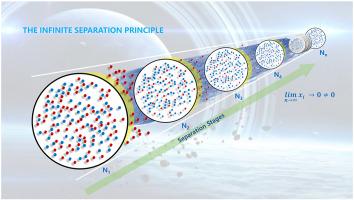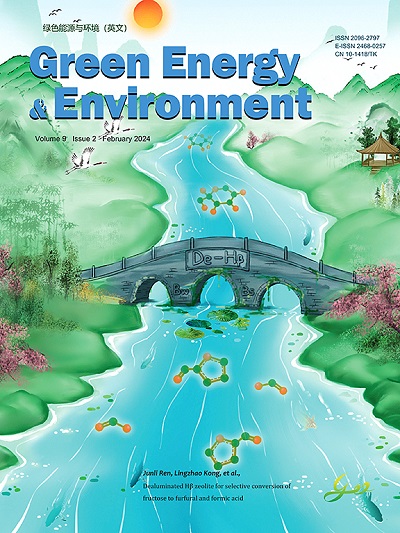无限分离原理
IF 10.7
1区 工程技术
Q1 CHEMISTRY, PHYSICAL
引用次数: 0
摘要
本文提出了“无限分离原理”。这一原理包含两个含义:首先,即使用尽所有的分离方法,包括化学技术,也不可能实现100%的混合物纯度;其次,分离可以在没有终点的情况下无限持续。本文章由计算机程序翻译,如有差异,请以英文原文为准。

The infinite separation principle
In this paper, we propose “The Infinite Separation Principle”. This principle contains two implications: firstly, even exhausting all separation approaches, including chemical techniques, it is impossible to achieve 100% purity for separating a mixture; secondly, separation can continue infinitely without an endpoint.
求助全文
通过发布文献求助,成功后即可免费获取论文全文。
去求助
来源期刊

Green Energy & Environment
Energy-Renewable Energy, Sustainability and the Environment
CiteScore
16.80
自引率
3.80%
发文量
332
审稿时长
12 days
期刊介绍:
Green Energy & Environment (GEE) is an internationally recognized journal that undergoes a rigorous peer-review process. It focuses on interdisciplinary research related to green energy and the environment, covering a wide range of topics including biofuel and bioenergy, energy storage and networks, catalysis for sustainable processes, and materials for energy and the environment. GEE has a broad scope and encourages the submission of original and innovative research in both fundamental and engineering fields. Additionally, GEE serves as a platform for discussions, summaries, reviews, and previews of the impact of green energy on the eco-environment.
 求助内容:
求助内容: 应助结果提醒方式:
应助结果提醒方式:


